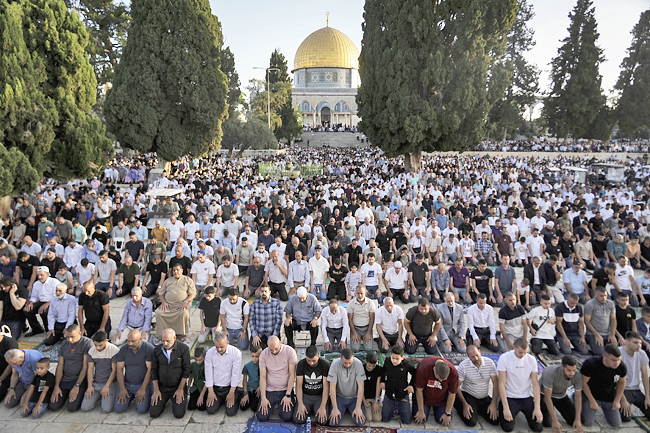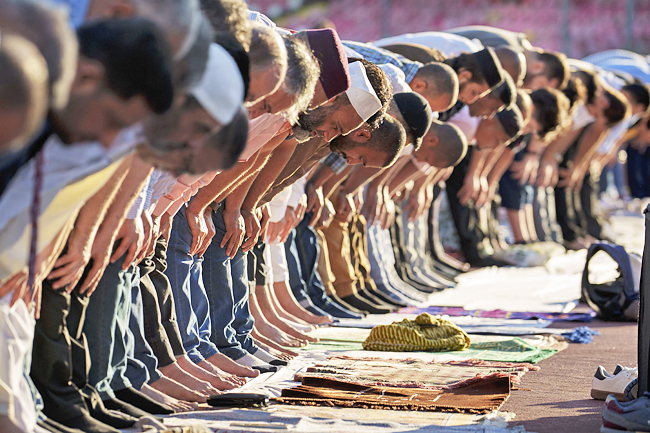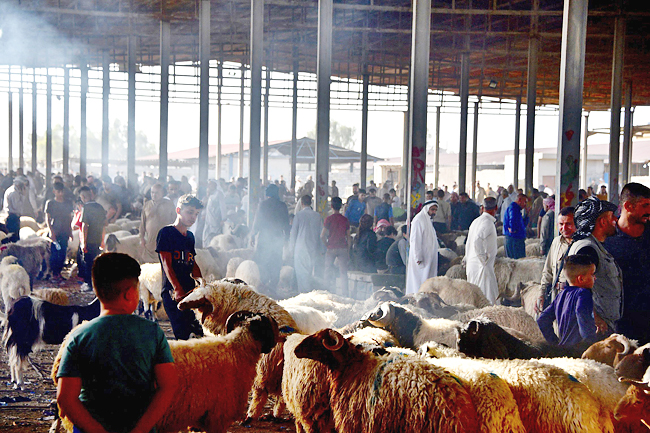In Islam, two pivotal festivals punctuate the calendar with profound spiritual and communal significance: Aidilfitri, commemorating the conclusion of Ramadhan, and Aidiladha, observed following the haj pilgrimage, focusing on the ritual of korban (sacrifice).
These festivals not only signify religious observances but also serve as vibrant occasions for Muslims worldwide to gather with loved ones, extend generosity, and reflect deeply on faith and community.
While Aidiladha is not directly tied to haj, its timing immediately following the pilgrimage imbues it with temporal significance in the Islamic calendar.
Aidiladha, falling on the 10th day of Zulhijjah in the Islamic lunar calendar, marks a significant occasion that follows the annual haj pilgrimage. This pilgrimage, one of the Five Pillars of Islam, is obligatory for Muslims who meet specific criteria.
As Muslims worldwide prepare for another Aidiladha, they reflect deeply on the story of Prophet Ibrahim (pbuh), revered as one of humanity’s greatest figures in Islam.
Prophet Ibrahim (pbuh) is celebrated as the patriarch from whom numerous prophets trace their lineage, including Prophet Muhammad (pbuh) in Islamic tradition. Ibrahim’s unwavering faith in Allah the Almighty and his profound willingness of sacrifice continue to serve as a timeless example of devotion and trust in divine guidance.



On Aidiladha, Muslims honour Ibrahim’s legacy by contemplating the enduring significance of his story and its profound message of faith and submission to Allah the Almighty.
SACRIFICIAL FAITH
The narrative of Prophet Ibrahim (pbuh) and his journey of faith begins in Babylon, modern-day Iraq, where he was born into a community steeped in idol worship.
Despite his father being a prominent idol sculptor, Ibrahim grew sceptical of worshiping lifeless idols and pondered deeply on the creation of the universe. Convinced that there could only be one true creator, he wholeheartedly submitted to “the Lord of the universe”.
This initial act of submission marked the beginning of Ibrahim’s steadfast devotion to Allah the Almighty. Inspired to guide his community to monotheism, Ibrahim faced numerous challenges, including being cast into a blazing fire by his own father.
Miraculously, he emerged unharmed, a testament to his unwavering faith in Allah the Almighty’s protection.
Years later, after establishing his prophethood and enduring many trials with his family, Ibrahim received a divine command in a dream to sacrifice his beloved son, Ismail (AS).
Despite the profound difficulty of this command, Ibrahim and Ismail both demonstrated unwavering faith and submission to Allah the Almighty.
As they prepared to fulfil the command on Mount Arafat, Allah the Almighty intervened, replacing Ismail with a ram and affirming Ibrahim’s faith and obedience.
This pivotal moment in Ibrahim’s life underscores his unwavering devotion to Allah the Almighty and serves as a timeless example of submission and trust in divine wisdom.
His story resonates deeply within the hearts of Muslims, inspiring reflection on the importance of faith, sacrifice, and unwavering commitment to the path of righteousness.
Hence, Aidiladha, or the festival of sacrifice, symbolises this act of obedience and devotion.
During Aidiladha, Muslims commemorate Prophet Ibrahim’s (pbuh) sacrifice by offering animals like goats, sheep, cows or camels to Allah the Almighty. This act, known as korban in Brunei, mirrors Ibrahim’s devotion and includes a responsibility to support the less fortunate.
Muslims approach this ritual with deep reflection and sincere intentions, following traditions that emphasise spiritual purity and adherence to the sunnah of Prophet Muhammad (pbuh).
Through korban, believers honour Ibrahim’s legacy and contemplate broader themes of compassion, respect for creation, and community support.
FESTIVE TRADITIONS
Celebrations span two to four days, varying by country – in Brunei, it’s generally celebrated for a day between families but korban events would be held throughout the month.
They commence with Aidiladha prayer, performed in congregation at local mosques on the morning of Aidiladha. Following prayers, Muslims perform the korban, or sacrifice.
This ritual, which involves slaughtering animals – sheep, lamb, goat, cow or bull in Brunei – depending on the number of shares required per animal.
Animals must be healthy and of a certain age, slaughtered in accordance with Islamic guidelines.
The meat from korban is then divided into three equal parts per share: one-third for the family, one-third for friends, and one-third for the needy.
Traditionally, Aidiladha is a time for gathering with loved ones, often dressed in new attire and exchanging gifts.
It embodies a spirit of generosity, communal harmony and spiritual reflection among Muslims worldwide. – Izah Azahari







